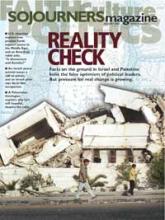As shareholders in Gods eternal story, we commune with a creating God and are drawn into fellowship with a global community. Our stories become shared experiences.
The idea of a collective story shared between God and humankind evokes a beautiful image, but it demands great responsibility. The relationship is extremely intimate. Hence, when tragic world events choke life, shatter dreams, and diminish hope, the people of God are called to act, pray, and invoke the presence of a life-giving God.
Jon Sobrino, Jesuit priest and scholar from El Salvador, writes a powerful account about God and humanitys connection to the tangible and intangible markers of our global story. In his book Where Is God? Earthquake, Terrorism, Barbarity, and Hope, Sobrino reflects on three specific tragedies that took place in 2001. Though the book was originally planned as a theological response to the devastating earthquakes that shook El Salvador in January and February of that year, Sobrino expanded it to allow reflection on the Sept. 11 attacks in the United States and the subsequent October bombings in Afghanistan.
These events structure the books progression. More important, Sobrino uses the three countries to tackle the theological task of explaining the complexities of Gods activity in the midst of natural disasters, in the chaos and destruction of random violence, and in the roles humans play as they struggle to live into Gods salvific narrative instead of the myth of empire.
Read the Full Article
